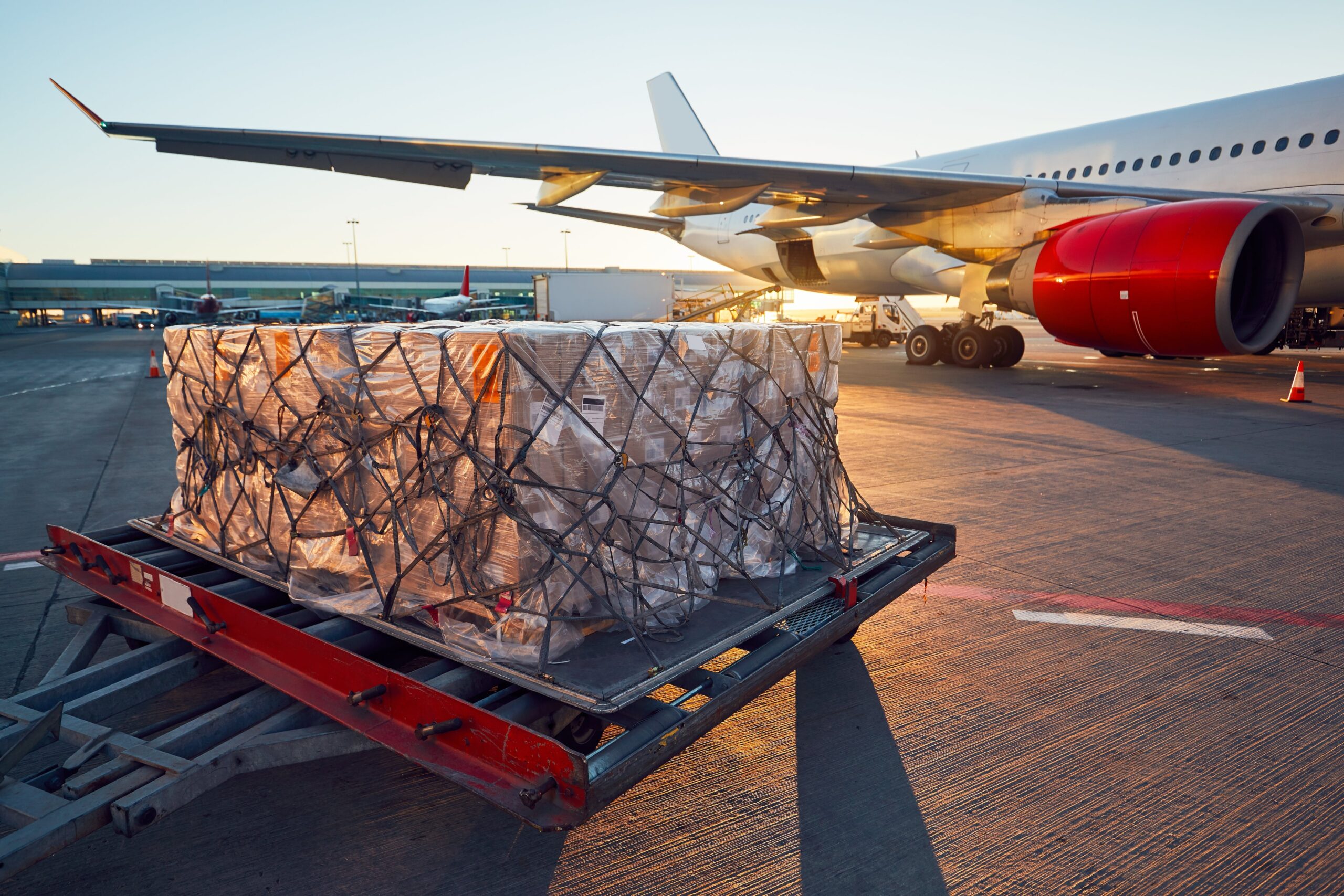22 Nov Boeing certification troubles in Canada ground 1st WestJet freighters
MIAMI — A delay in getting four 737-800 aircraft, newly converted to freighters by Boeing, certified by the Canadian government has set back WestJet’s plans to expand into freighter operations by nine months.
The four cargo jets are sitting idle on the tarmac at Calgary International Airport, WestJet’s home base, while Boeing awaits approval from aviation authorities for the design changing the used passenger aircraft into a dedicated freighter.
WestJet now expects to commence all-cargo flights on March 26, the start of the summer flying season, Kristin de Bruijn, executive vice president of cargo, said in an interview here this month during The International Air Cargo Association trade show.
Once Transport Canada greenlights the structural modification, which includes installing a wide cargo door in the fuselage and reinforced flooring to support containers, the airline can add the planes to its air operators certificate. Then it will need a few months to understand how the aircraft operate and complete technical acceptance and validation.
“The certification didn’t go as planned and we had different expectations about the duration of the certification,” said de Bruijn. “It’s been a lengthy process. Unfortunately, we had to delay the start.”
WestJet officials indicated last spring they expected to have two cargo jets in revenue service by July 1, or sooner. The airline is leasing the 737-800s from BBAM Aircraft Leasing and Management, which sent the planes to a Boeing (NYSE: BA) overhaul partner in China to carry out the conversions.
Boeing put through fine-tooth comb
WestJet Cargo, essentially a startup airline within an airline, will be the first in Canada to operate a 737-800 modified under Boeing’s conversion program. The airline had two of the cargo jets in its possession by midsummer, according to an aviation database shared with FreightWaves. WestJet will have lost nine months between the original start date of freighter service in July and next year’s revised schedule.

Transport Canada in January approved a supplemental type certificate for independent Aeronautical Engineering Inc. (AEI) to transform the narrowbody aircraft into a cargo configuration for Chrono Aviation, but Boeing is still waiting for its version to be registered.
AEI took less than three months to obtain its certification from Transport Canada, said Robert Convey, the company’s senior vice president of sales and marketing. That’s because it validated the Federal Aviation Administration’s approval of aircraft changes, checking the paperwork instead of conducting a top-to-bottom review and testing of the aircraft — a common practice for internationally made aeronautical products.
Since Boeing owns the aircraft’s type certificate it just needs to modify it through a service bulletin rather than submitting a supplemental type certificate (STC) to authorities, the path taken by third-party conversion shops.
Boeing is having a difficult time with the 737-800 certification because frayed relations with the FAA after the deadly crashes of the 737 MAX and quality control problems with 787 fuselages have followed the company north of the border, according to an industry source familiar with the WestJet situation.
Investigations determined that Boeing hid safety problems and misled regulators and customers during the MAX development. The mistakes, shortcuts and management failures damaged Boeing’s reputation. Congress and the FAA subsequently cracked down on the practice of delegating certain technical approvals to manufacturers, among other safety reforms.
Aviation regulators, who no longer automatically trust Boeing to take all the right steps, are forcing the manufacturer to follow certification processes to the letter rather than get the benefit of the doubt.
“In days past they just would have rubber-stamped it,” said the source, who did not want to be identified so as not to jeopardize business relationships with various parties. “That’s what’s holding it up.”
Transport Canada said in a statement to FreightWaves: “The foreign validation of an aeronautical product involves the establishment of the Canadian certification basis, providing technical information related to the design, and reviewing compliance against Canadian design standards and policies. This is a highly technical activity and can be a lengthy undertaking, depending on the complexity of the aeronautical product. The timelines for the [Boeing 737 converted freighter] program to date are commensurate with those for similar projects.”
An aerospace industry expert, speaking in an unrelated context last spring, said the close ties between Boeing and the FAA created an expectation that if something about the aircraft had yet to be completed the process, such as a flight test or type inspection authorization, could move along while Boeing finished up the job.
Now the FAA won’t accept promises. It wants planes in a service-ready state for certification. And it appears, Transport Canada is taking a similar approach.
One reason Boeing’s 737-800 conversion may not be fully ready for certification is a new Transport Canada requirement for planes to undergo “cold-soak” testing to demonstrate they will perform in extreme cold temperatures, which likely caught Boeing by surprise. The testing typically involves parking a plane at a northern airport where temperatures reach minus 40 degrees Fahrenheit and operating flaps, doors, systems and gears to make sure nothing sticks or freezes up.
AEI was informed by Transport Canada when it applied for STC validation that cold-soak testing would be required, but was able to provide performance data from previous 737-400 conversions for Canadian customers to demonstrate airworthiness, Convey said.
If Boeing didn’t realize until the spring it would need to conduct extreme-temperature tests it likely had to wait for winter to come around again.
The delays likely are costing WestJet or BBAM a lot of money, depending on whether WestJet is making lease payments or not for aircraft it can’t use yet. WestJet is also paying to park the planes at Calgary International Airport. BBAM could be subject to penalties for not delivering usable aircraft within an agreed time frame. The lessor in turn could have a claim against Boeing for late delivery. And Boeing is minus cash flow from the deal because it won’t get paid until the planes get certified and can fly, aviation leasing experts say.
Boeing, WestJet and BBAM officials refused to respond to questions about the delays, timing of the leases or whether Boeing will provide compensation.
WestJet Cargo prepares for takeoff
WestJet has already invested in training manuals, equipment and capabilities to become a full cargo organization because operating all-cargo jets involves different processes than moving cargo in the bellyhold of passenger aircraft. GTA Group will provide ground handling for WestJet at the freighter hub in Toronto.
De Bruijn, who joined WestJet in the spring after a stint at Qatar Airways, provided new details about the freighter network that differed from what her predecessors previously suggested.
WestJet Cargo will offer transborder and intra-Canada service. The initial routes will be Toronto-Miami, Toronto-Los Angeles and four major cities in Canada: Vancouver, Calgary, Toronto and Halifax.
WestJet sent a large delegation to Miami, and had one of the exhibition’s most prominent booths, to market the new Miami service.
WestJet’s original plan was to focus on domestic, overnight express delivery, possibly as a contract carrier for an express operator, while offering limited special purpose charters during off-peak hours. Scheduled flights between major Canadian cities and across the border were part of the next phase.
“We’re going to market the space ourselves initially,” de Bruijn said. “Certain customers may want a dedicated route. But what we should do first is start so they can see how the aircraft operate. You need to prove your reliability before customers will sign a long-term flying program with you. We need to get through the summer and show that first because it’s not going to be easy.”
De Bruijn said she expects to start closing contracts for the new freighter services in February.
The freighters will play an even more important role distributing cargo in a hub-and-spoke operation now that WestJet is centering its widebody 787 Dreamliner fleet around western Canada.
The cargo chief dismissed a question about whether there is enough business to go around in the Canada market with Air Canada in the past year launching a freighter division with larger Boeing 767 cargo jets and all-cargo operator Cargojet steadily expanding.
“We see quite some demand. Canada is twice the size of the European Union. You need freighters [especially with] a lot of hiccups in the supply chain,” said de Bruijn. “And more widebody capacity that used to be positioned inter-Canada is now going international. So domestically you’re seeing a reduction in capacity because of that shift as the markets are opening again. That gives more room for business.”
WestJet this month launched a new cloud-based cargo management system from SmartKargo, which officials say is better equipped to handle the freighter business than its legacy system.
DeBruijn eventually wants to expand the freighter fleet beyond four aircraft to maximize operating efficiencies.
“If you look at any study it’s always a minimum of seven or eight to get the cost benefits,” she said. “We’re starting with four, we just need to get them in the air and then I’ll work on a longer-term strategy on what that right size is.”
Click here for more FreightWaves/American Shipper stories by Eric Kulisch.
RECOMMENDED READING:
WestJet revs up cargo division with 1st freighter, new chief
WestJet marks new era with move to cargo jets
AEI certifications enable more 737-800 converted freighter sales
Boeing, Airbus raise 20-year outlook for air cargo on express growth
The post Boeing certification troubles in Canada ground 1st WestJet freighters appeared first on FreightWaves.


